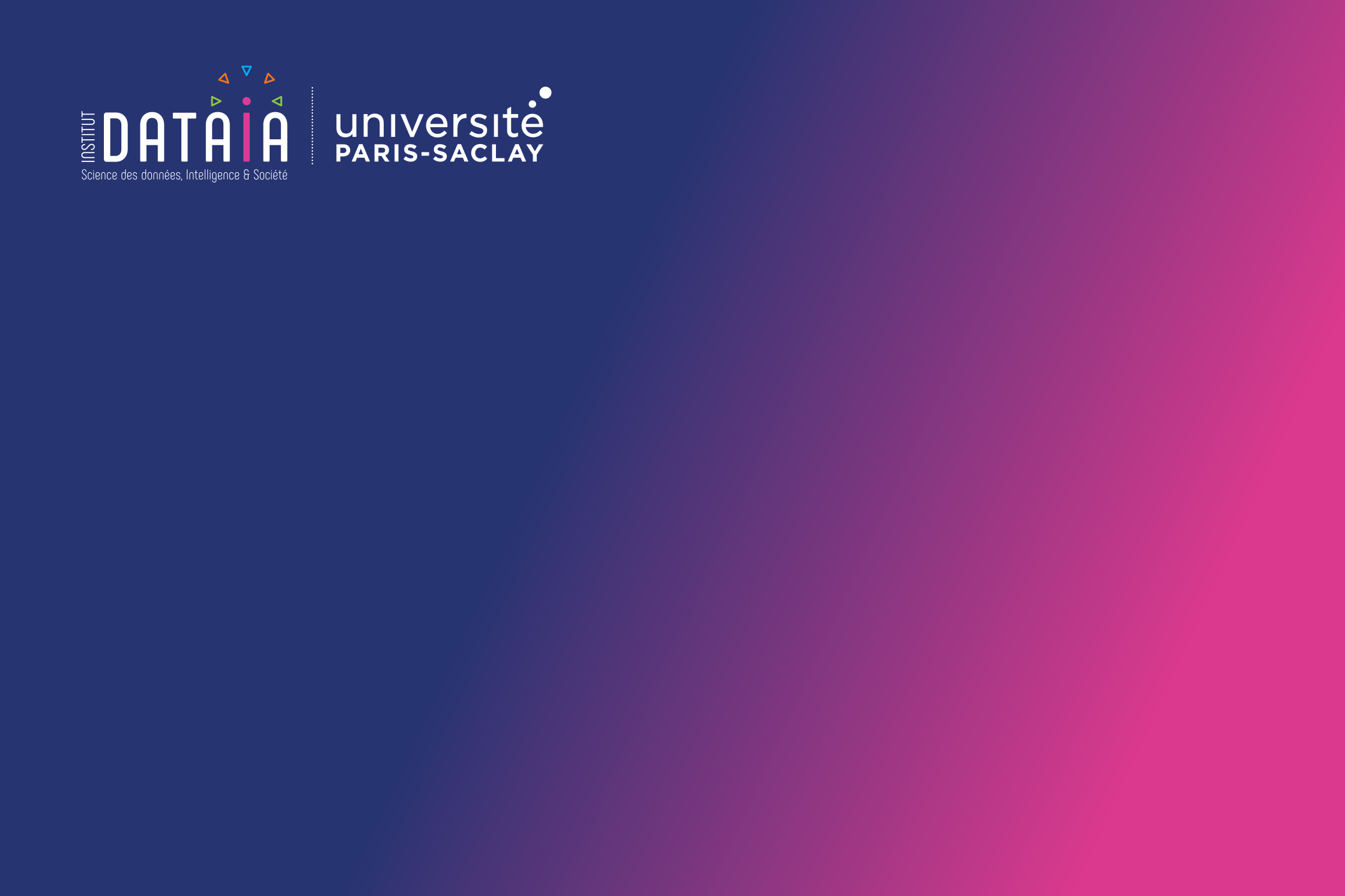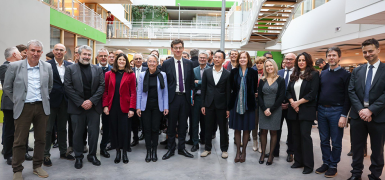In the context of supporting the emergence of world-class training clusters in the field of artificial intelligence (AI), training talent that meets the needs of the industry is a priority of the France 2030 investment plan. A call for expressions of interest aimed at setting up internationally visible clusters of excellence for AI training and research (AI-clusters) was thus launched in 2023, as part of the National Strategy for AI.
On Tuesday, May 21, 2024, French President Emmanuel Macron brought together France's leading players in artificial intelligence as part of the "AI Cluster: research and training clusters in artificial intelligence" call for expressions of interest (AMI).
The DATAIA-Cluster, at the heart of the Paris-Saclay University, aims to achieve four objectives:
-
Make France a world leader in AI by establishing an internationally recognized interdisciplinary cluster that tackles economic and societal challenges, including ethics, ecology and sovereignty;
-
Foster the transformation of society through AI by significantly increasing the number of students trained in AI;
-
Establish an effective continuum between research, innovation and training;
-
Ensure the adaptability of the DATAIA-Cluster to the rapid evolutions and impacts of AI.
Multidisciplinary collaboration
The consortium includes 14 higher education institutions and research organizations, as well as an external continuing education company (CentraleSupélec Exed), the Fondation de Mathématiques Jacques Hadamard (FMJH), and the Institut Gustave Roussy. The DATAIA Institute, a center dedicated to AI at the Université Paris-Saclay, has played a key role since 2017 in structuring the French AI ecosystem in research, training and innovation.
In order to meet the demand for training in all the sectors covered by the France 2030 investment plan, the French government has set up the "Compétences et métiers d'avenir" (CMA) scheme to support projects by higher education establishments and other training organizations in all the France 2030 objectives, from the start of the 2022 academic year. Within this framework, the SaclAI-School project (€11.4 million), led by Université Paris-Saclay, covers a wide range of degree levels: from bachelor's degrees to doctorates for universities on the one hand, and master's degrees for the associated grandes écoles on the other, both for initial training and lifelong learning. The courses on offer cover both the core of AI and AI + X. Saclay can also count on a pool of students likely to be attracted to initial training due to the University's size and reputation. In addition, attractiveness grants (MixtAI) are planned to encourage parity and social diversity.
"We are particularly pleased that the project we are carrying out via the DATAIA Institute has been awarded the IA-Cluster label of excellence. The funding will enable us to implement an ambitious research program, thanks to modular, multi-sponsored Chairs of Excellence, involving researchers and industrial partners and enabling the development of innovative projects with co-supervised theses, post-doctoral contracts and mobility in conjunction with our international partners. This program focuses on both core AI and interdisciplinary AI topics - particularly considering AI in relation to mathematics, physics and medicine - areas in which Université Paris-Saclay enjoys a very high profile. In terms of training, our aim is to train our best students in AI research and innovation, starting at bachelor's and master's levels. A wide-ranging program of teacher training and the recruitment of adjunct professors from industry will support the transformation of our courses to AI. Lastly, we plan to develop a program open to the international community, unprecedented in terms of attractiveness, both at the University, with the introduction of scholarships and PhD tracks for our excellence courses, and upstream, to arouse the interest of younger people in AI professions in the broadest sense", enthuse Frédéric Pascal, Professor at CentraleSupélec, Sarah Cohen-Boulakia, Professor at Université Paris-Saclay and Frédéric Chazal, Director of Research at Inria, respectively Director and Deputy Director of the DATAIA Institute.









